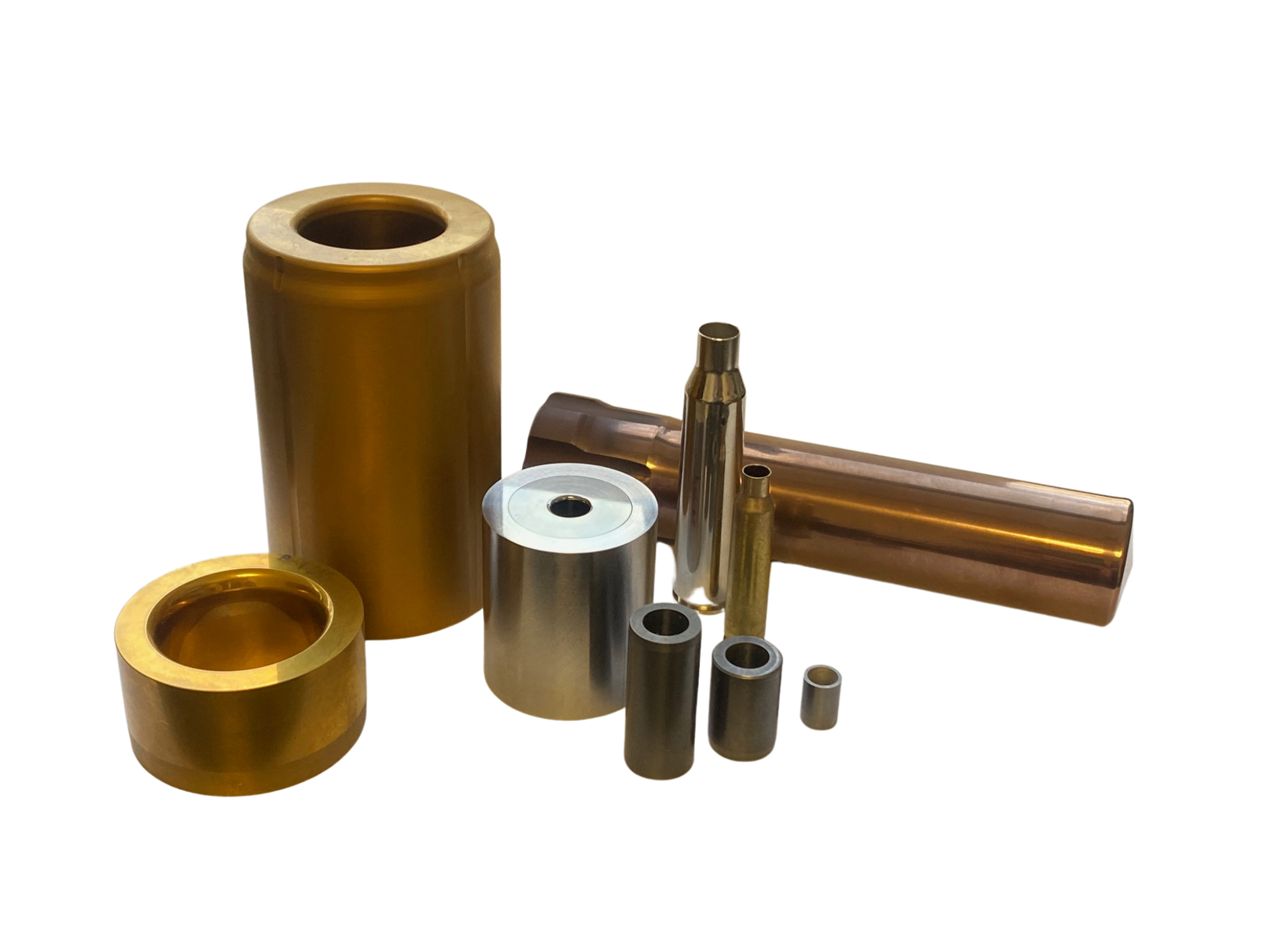In high-precision manufacturing, every tool counts. When it comes to punching operations, tool failure can lead to costly delays, poor-quality output, and increased maintenance downtime. That’s why the durability of carbide punches is such a critical factor.
A carbide punch is often the go-to solution for applications that involve repeated stress, high temperatures, or demanding tolerances. But are carbide punches truly as durable as their reputation suggests? And what makes them different from traditional tool steels?
Key Highlights
- The durability of carbide punches is due to tungsten carbide’s hardness, heat resistance, and wear tolerance.
- A carbide punch offers longer tool life, consistent accuracy, and reduced downtime in high-volume operations.
- Proper maintenance, storage, and tool selection help extend the lifespan of your carbide punch.
- Raven Carbide Die offers custom tooling solutions with a focus on quality and long-term performance.
What Are Carbide Punches?
Carbide punches are precision tools used to create holes or shapes in a workpiece, typically metal. They are made from tungsten carbide, a material known for its exceptional hardness and wear resistance.
Unlike standard punches made from tool steel or high-speed steel, a carbide punch maintains its integrity under high-pressure conditions and extended use.
The core benefit of using carbide punches lies in the material itself. Tungsten carbide is a compound of tungsten and carbon, offering a unique combination of strength and rigidity. This makes it especially suitable for applications where softer materials would deform or wear down too quickly.
Carbide punches are commonly used in die sets for stamping, forming, and cutting operations. Their high strength-to-brittleness ratio allows for more precise and repeatable results in environments where consistency is key.
In industries where tolerances are tight and tool failure is not an option, the durability of carbide punches becomes a non-negotiable requirement.
Why Durability Matters in Punch Tools
In any high-volume production environment, tool durability directly impacts productivity and cost. A punch that wears out quickly means more frequent replacements, higher downtime, and inconsistencies in part quality. That’s why the durability of carbide punches is a significant factor in tool selection.
Durable tools reduce unplanned stoppages. This is especially important in industries like automotive, aerospace, and electronics manufacturing, where the slightest deviation in a part can lead to failed assemblies or expensive recalls. Using a long-lasting carbide punch helps ensure precision is maintained from the first part to the thousandth.
Durability also influences the overall cost of ownership. While a carbide punch may cost more upfront, it tends to pay off over time. Fewer replacements, less tool regrinding, and lower maintenance costs make it a smart choice for long-run jobs.
ALSO READ: Carbide Dies Lifespan: Common Mistakes That Shorten It (And How to Avoid Them)
The Durability of Carbide Punches: What Makes Them Last?
The durability of carbide punches comes from the properties of tungsten carbide itself. This compound is incredibly hard—ranking around 9 on the Mohs scale—just below diamond. That hardness translates to superior wear resistance, even in harsh manufacturing conditions.
Unlike tool steels, which can deform under repeated stress or heat, a carbide punch maintains its shape and sharpness far longer. Tungsten carbide punches offer exceptional resistance to wear, corrosion, and deformation, which are qualities essential to maintaining tight tolerances over long production runs.
Heat resistance also plays a role. A carbide punch resists thermal softening, which means it stays effective in high-speed or high-friction applications. This reduces the risk of punch failure, even when the process generates significant heat.
Key Benefits of Using a Carbide Punch
Choosing a carbide punch offers more than just durability. It supports efficient, accurate, and cost-effective production. Below are some of the most valued benefits:
1. Extended Tool Life
One of the main reasons manufacturers choose carbide punches is their long service life. Thanks to their hardness and resistance to wear, these punches last significantly longer than standard tool steel punches, especially in high-speed or high-volume operations.
2. Consistent Accuracy
Carbide punches’ durability means less tool distortion over time. This results in cleaner cuts and more uniform parts, reducing rejects and quality issues in your output.
3. Reduced Downtime
Frequent tool changes can stall production. A long-lasting carbide punch reduces the need for replacements, which helps keep your lines running smoothly and on schedule.
4. Improved Surface Finish
Because a carbide punch maintains its edge longer, it produces smoother finishes on stamped or formed parts. This may even reduce the need for secondary finishing work.
5. Cost-Effective Over Time
Although initial costs are higher, the durability of carbide punches pays off in the long run. Lower replacement frequency, improved part consistency, and less downtime all contribute to overall savings.
How to Maximize the Durability of Carbide Punches
Even the most robust carbide punches need proper handling to perform at their best. Taking care of your tooling can extend its lifespan and help maintain precision in your operations.
Here are a few ways to get the most out of every carbide punch:
1. Use the Right Tool for the Job
A punch designed for thin sheet metal may not hold up in thick or abrasive materials. Always match your carbide punch to the material and process conditions to prevent premature wear.
2. Proper Storage and Handling
Avoid dropping or mishandling punches. Although a carbide punch is hard, it can be brittle if struck against a hard surface. Keep punches in protective holders or cases to prevent chipping or cracking.
3. Apply Surface Coatings When Needed
Depending on the job, surface coatings can reduce friction, repel heat, or improve resistance to corrosion. Some coatings can enhance the durability of carbide punches, especially for high-friction or high-heat applications.
4. Regular Maintenance
Clean and inspect your punches between jobs. Look for signs of edge wear or damage. Catching issues early can prevent tool failure and costly delays.
5. Partner with a Quality Tooling Provider
A reliable supplier can ensure your carbide punches are made to exact specifications and help you use the right tools. Poor manufacturing or substandard materials can shorten tool life, even when you follow best practices.
Making the Right Choice for Long-Lasting Performance
From stamping and forming to complex die applications, a quality carbide punch holds up where traditional tools might fail. That’s why so many manufacturers rely on them as part of their core operations.
At Raven Carbide Die, we design and manufacture carbide punches built for performance. Our team works closely with customers to provide durable tooling solutions that fit your exact needs. Whether you’re working with tough materials or require tight tolerances, we’re here to help.Ready to improve your production reliability? Learn more about our services and how our carbide punches can support your operations.



